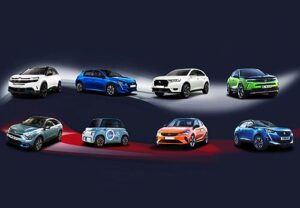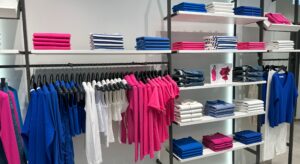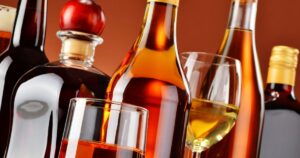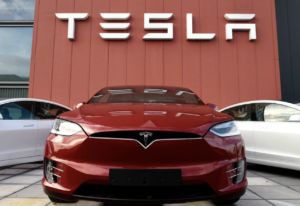
Doctors and pharmaceutical manufacturers demand to strengthen the fight against illegitimate advertising of fake medicines on the Internet using well-known brands and faces of leading experts in the medical industry.
As Doctor of Medical Sciences, Director of the Heart Institute of the Ministry of Health Borys Todurov emphasized at a press conference at Interfax-Ukraine on Tuesday, fraudulent advertising on the Ukrainian pharmaceutical market can claim hundreds and thousands of lives. As an example of this, he cited the fact that, in particular, fake drugs are often advertised on the Internet in his name.
“On the Internet, on Facebook, drugs are offered in my name that we allegedly develop. Don’t believe that this is so – we do not take part in the development of new drugs. We perform operations, we only engage in surgery,” he said.
Todurov noted that every day he responds to many messages regarding fake drugs that he is allegedly developing, and there are “dozens” of such drugs. One of the latest such fake drugs that is sold online in his name is Normocardis.
Todurov noted that he had already contacted law enforcement agencies with statements about precedents, and that the cyber police had already opened a criminal case into the use of his name and the names of his colleagues.
“It is very difficult to track such scammers, they are often located abroad. But I think that it is possible to find and catch at least those people who distribute fake drugs in Ukraine – they have telephone numbers, a specific address, they can be tracked,” the director of the Heart Institute said.
Todurov noted that advertisements for fake drugs are often created using artificial intelligence (AI) technologies, which make it possible to create believable videos using the images and voices of specific famous doctors.
In turn, Honored Doctor of Ukraine, director and founder of the medical center Clinic of Dr. Valikhnovsky Rostyslav Valikhnovsky said that on his behalf there were recorded cases of distribution of at least eight drugs and dietary supplements that supposedly treat joints, varicose veins, heart, and rheumatic diseases.
“This has absolutely nothing to do with reality. I want to put it on record that this is not true and our brand has nothing to do with these drugs,” he said.
Valikhnovsky noted that the clinic also contacted the cyber police in Kyiv, and law enforcement agencies managed to block sites that posted such information in one day. However, he noted that it was not possible to solve this problem with Facebook.
“With Facebook it is very difficult to solve this problem during the war, so with this press conference I would like to appeal to the Minister of the Interior, the Prosecutor General, so that they take this problem under personal control,” he said.
Valikhnovsky noted that “if nothing is done now at the beginning of the development of AI, then later we will not be able to correct anything.”
At the same time, he emphasized that clinics and doctors without law enforcement agencies cannot independently identify fraudsters and fight them.
For his part, head of the Association of Pharmaceutical Manufacturers of Ukraine Petro Bahriy clarified that in war conditions it is quite difficult to estimate the volume of the market for such fake drugs, including due to the ban on inspections.
“We cannot accurately estimate the volume of such a market, especially during the war. But we are interested in the Ukrainian pharmaceutical market being transparent, so that the promotion of medicines is legal, because we know about the responsibility for people’s health,” he said.

Bahriy noted that the Association was one of the initiators of introducing criminal liability for false advertising and the production and distribution of fake drugs.
“I support my colleagues and appeal to law enforcement agencies and everyone who can help overcome this shameful phenomenon and stop these scammers who today, using well-known brands of doctors, promote in their name fake drugs that harm health and even kill,” he said.
Bahriy also emphasized that leading domestic pharmaceutical companies are constantly developing R&D, developing new drugs according to international standards of evidence-based effectiveness, safety and quality, investing significant funds in this area.
“Fake drugs sold online in this way harm people’s health, but also harm the economy, because fraudsters, unlike pharmaceutical manufacturers, do not pay taxes, do not create jobs, and do not invest in the development of their brand and the country’s economy. The business of these scammers harms everyone, and law enforcement officials must solve this problem,” he concluded.
ADVERTISING, BAHRIY, BRAND, DOCTORS, FAKE, MEDICINES, PHARMACISTS, Valikhnovsky, Тодуров

The Stellantis representative office in Ukraine (Peugeot, Citroёn, Opel, DS Automobiles, Jeep) sold approximately 5.1 thousand new passenger cars and light commercial vehicles (LCVs) in its dealer network in 2023, taking more than 7% of the market, the representative office’s press service reports.
As reported, in 2022, the share of Stellantis brands, whose sales amounted to 3 thousand units, accounted for 6.84% of the passenger car and light commercial vehicle market.
Thus, in 2023, car sales of the five brands increased by almost 70%, and the market share increased slightly, given that the market for new passenger cars and LCVs grew by 63.5% by 2022 to 65.1 thousand units (including 65.1 thousand passenger cars and about 7.4 thousand commercial vans/vans).
“Thus, the total growth of Stellantis brands exceeded the growth of the new car market in Ukraine by 6%. Moreover, the end of the year was very positive: in December, sporadic sales growth allowed Stellantis to take 9.7% of the market, which may signal a steady increase in sales in 2024,” the press service said.
According to the representative office, Peugeot became the sales leader among the brands (in 2022, Citroen won this position from it – IF-U) with a 74% increase in sales to 2.17 thousand units, which allowed it to take about 3% of the car market (in 2022 – 2.81%).
The best-selling models were the crossovers Peugeot 3008 (470 units) and Peugeot 2008 (348 units), while vans and vans Peugeot Boxer (294 units), Peugeot Partner (168 units) and Peugeot Rifter (144 units) were consistently popular.
Among passenger cars, the Peugeot 301 sedan (198 units) and the new Peugeot 408 crossover fastback (194 units sold in less than a year on the market) were good sellers.
In addition, the company considers the launch of a completely new product – the Peugeot Landtrek pickup truck – a success (225 vehicles sold in less than a year).
Sales of the Citroen brand increased by 58% to more than 2 thousand units, which allowed it to take 2.8% of the market (in 2022 – 2.87%).
Among passenger cars, the most popular models were the large Citroen C5 Aircross crossover (386 units sold), the Citroen C-Elysee sedan (340 units) and the Citroen C3 compact hatchback (196 units), and among commercial vehicles – the large Citroen Jumper (498 units) and the compact Citroen Berlingo (368 units).
“Thanks to the wide LCV lineup, Citroen is becoming a leader in sales of special vehicles and converted vehicles,” the press release states.
Sales of the German brand Opel, according to Stellantis Ukraine, increased by 96.5% last year to 890 units, with a market share of 1.2%, and the best-selling vehicles were the compact Opel Combo (344 units) and the mid-size crossover Opel Grandland (297 units). The compact crossovers Opel Mokka (104 units) and Opel Crosland (74 units) were in good demand.
The premium brand DS Automobiles sold 69 units (in 2022 – 62 units), with the largest number of DS 4 hatchbacks sold (47 units).
The company considers its relaunch by a new importer to be the main achievement for the Jeep brand in the Ukrainian market.
“The comprehensive ‘relaunch’ of the brand in Ukraine took place at the end of 2023, so Jeep’s sales results are not yet indicative. However, 2024 should demonstrate the full strength of the brand, especially given the replenishment of the model lineup,” the press release said.
As reported, the lineup for the brand launch has been formed, price lists have been announced, and new dealerships are starting to operate in the largest cities of Ukraine.
“This year, the model lineup will be complemented by the compact crossover Jeep Avenger, which is already on the market,” the press release said.
The report reminds that Stellantis Ukraine has been providing free repairs of state and municipal vehicles since March 2022: 2.7 thousand vehicles have been repaired to date, more than 10.5 thousand applications for repairs and maintenance have been submitted, and the total cost of work exceeds UAH 75 million.
Stellantis was formed in mid-January 2021 as a result of the merger of PSA Group and Fiat Chrysler Automobiles NV (FCA).

Ukrainian clothing brand Solmar since February 2022 has expanded its network to 12 stores in Ukraine and entered Poland, in the nearest plans to expand the Ukrainian network by 10 more stores, business development director Tatyana Lakhtadyr told the agency “Interfax-Ukraine”.
“At the time of the full-scale invasion, the network had seven stores in Kiev, Vinnitsa, Khmelnitsky, Lviv and Zhitomir. Today the chain has added five more stores and three more stores will open within the next month: in Kiev’s Ocean Plaza and Lavina mall and in Veles mall in Ivano-Frankivsk. We are also preparing the opening of the first street-format store in Uzhgorod”, – said Lahtadyr.
Solmar, a Ukrainian basic closet brand with a Ukrainian team, traces its origins to Instagram. By the beginning of 2022, more than 60% of sales came from the online channel (website solmar.com.ua and Instagram page). The first “brick-and-mortar” (offline) stores were opened in July 2020 almost simultaneously in Khmelnytskyi and Kyiv.
“These were small stores of just over 30 square meters, which were supposed to serve more as showrooms for the assortment presented online. But almost immediately we realized that a different customer comes to the store than online. Offline stores became a full-fledged channel for attracting new customers and Solmar brand connoisseurs”, – said Lakhtadyr.
Now the company is working on expanding the assortment and actualization of the store format (about 100-150 square meters). Children’s assortment, perfumes have already been added to the basic women’s closet, and several positions of men’s collection are planned for the fall-winter season.
Lakhtadyr said that Solmar continues active development of offline network, in Ukraine in the coming year it is planned to open at least 10 locations.
“In addition, in July we opened our first store in Poland in Poznan (shopping center Posnania) and we are already finalizing negotiations on the second location. It is too early to talk about the first results, but sales from the site in Poland are already yielding results above our expectations. I think that next year will be the year to open a new country for Solmar”, – said Lahtadyr.
According to Opendatabot, TOV “SOLMAR” was registered in 2020, the size of the authorized capital of UAH 1.155 million, the ultimate beneficiary Olga Kostetskaya. Income for 2021 UAH 5 million 398.8 thousand, net profit of UAH 42.5 thousand.

Moutai (“Maotai,” a subspecies of China’s traditional baijiu spirits) has topped the global alcoholic beverage rankings for the eighth consecutive time, according to an annual study by Brand Finance.
The brand, owned by Kweichow Moutai Co. Ltd. is valued at $49.7 billion, with its value increasing 16% over the year.
Two more Chinese brands – Wuliangye ($30.3 bln, +5.4%) and Xinghuacun Fen Wine ($8.4 bln, +68%) – ranked second and third.
The fastest growing brands were tequila producers – Mexican 1800 ($424m, +111.5%) and US Casamigos ($934m, +108.5%). Tequila has been outpacing all other spirits in terms of market growth for several years now, notes Henry Farr, deputy director of Brand Finace.
The first place among beer brands in the world took Heineken: its value has increased by almost 10% – up to $7.6 billion. Corona Extra, which headed the list last year, fell to the second position, due to a less significant increase – by 6% to $7.4 billion. The third place was retained by Budweiser – the brand has added in value of almost 20%, reaching a mark of $6.7 billion.
The fastest growth in the beer and beer drinks segment was demonstrated by Chinese brands Zhujiang ($680 mln, +44%) and Tsingtao ($2.1 bln, +39%). Unlike other companies, Zhujiang Brewery did not increase the cost of its products, offering customers an optimal price-quality ratio. This increased demand for its products from young and price-sensitive consumers. Tsingtao’s success is due to the revision of its business model: in 2022, the brand owner opened more than 250 beer houses and presented a new customer-oriented strategy, according to Brand Finance.
In the category of “wine and champagne” the most expensive brand for the third time in a row became Moet & Chandon. Its value is estimated at $1.3 billion, which is 10% less than last year.
Its closest competitor – Chinese Changyu – on the contrary, managed to show a positive dynamics of 33% (up to $1.2 billion) and rise by two positions at once over the year. Despite the fact that this brand is little known in Western countries, Brand Finance experts do not rule out that in the future it may lead the rating due to the growth of the already voluminous wine drinks market in China.
The third line in the wine and champagne segment with an indicator of $1 billion was taken by the American brand Chandon (+8%).
The fastest growing brand in this category was Penfolds ($659 mln, +48%). The Australian company Treasury Wine Estates, which owns the brand, is currently making efforts to increase its global awareness and market share. Thus, the 2022 collection for the first time includes not only Australian, but also French and Californian wines.

Tesla has risen by two lines in the list of the most expensive car brands in the world and topped it for the first time, overtaking Mercedes-Benz and Toyota, according to Brand Finance.
Tesla’s brand value is now valued at $66.2 billion, up 44 percent in one year and five times since pre-demonstration times.
“This increase in brand valuation is a positive signal for Tesla because it indicates better brand awareness, which could lead to higher sales and revenue in the future,” said Alex Hay, director of valuation at Brand Finance.
Toyota dropped to third place, losing 18% of its value ($52.5 billion), while Mercedes-Benz remained in second place (minus 3%, $58.8 billion).
The record jump in value in the sector was demonstrated by the Chinese automobile brand Sokon – by 123% over the year to $739 million.
The analysts of Brand Finance called Ferrari NV the strongest automobile brand having given to it the maximum rating “AAA+”. When evaluating brand strength, the company considers a host of other indicators besides value, including investment in marketing, operating results, and relationships with stakeholders (from employees, suppliers and shareholders to government agencies and community organizations).
The value of the Ferrari brand fell 8 percent over the year, mainly due to the depreciation of the euro against the dollar, to $7.4 billion. In euros, the figure rose 3 percent.
Among auto parts manufacturers, the most expensive brand was once again Japanese Denso, which rose in value over the year by 6%, to $4.5 billion. In the segment of tire manufacturers the French Michelin remained the leader (+2%, to $7.9 billion).

The first in Ukraine store of the Spanish brand of women’s clothing and accessories Bimba Y Lola with an area of 74 square meters opened in the Ocean Plaza shopping and entertainment center (Kyiv), the press service of the mall has told Interfax-Ukraine.
Founded in 2005 by the Dominguez sisters, premium family brand Bimba Y Lola is known for bold prints, fancy cuts and vibrant palettes.
Currently, there are 269 stores of this brand in the world.
Earlier, the Bimba Y Lola brand in Ukraine was represented by a small corner in the Kyiv TsUM (Central Department Store).